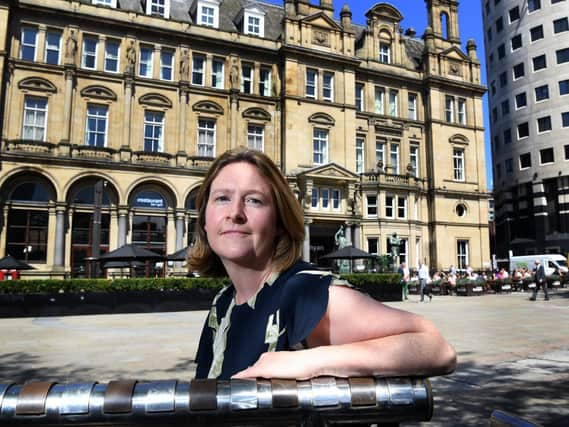Young people's panel could shape renewed Northern Powerhouse post-coronavirus


Speaking at an online ‘webinar’ discussing the region’s recovery and growth amid the Prime Minister’s “build back better” agenda, hosted by Transport for the North, Sarah Longlands, director of the IPPR North think-tank, called for the creation of a young people’s panel that would help to “develop a programme of recovery for the north, that would inform Mayors and local leaders”.
Her comments came as concerns were raised by Lord Jim O’Neill, vice chair of the Northern Powerhouse Partnership, who said success of the project depended on young people, and that funding was desperately needed to address low levels of educational attainment across the North.
Advertisement
Hide AdAdvertisement
Hide AdSpeaking to the Yorkshire Post after the meeting, Ms Longlands said: “Instead of establishing recovery taskforces which have the same old faces, we need new ideas, new voices and different perspectives.
“We already know that young people are likely to be hit very hard by this crisis. Many will be worried about how this impacts on their plans for university, college and employment. So instead of trying to second guess their priorities, why don’t we actively involve them in the recovery.”
The forum could explore “the key questions of our time” such as tackling health inequalities in the North, local transport, digital connectivity, helping people back into decent work and climate change, she added.
Ms Longlands also shared concerns regarding the Prime Minister’s “build, build, build” plan, in that it would not see immediate results to help those who may have lost their jobs due to pandemic.
Advertisement
Hide AdAdvertisement
Hide AdIn April, the Institute for Social and Economic Research at the University of Essex warned that more than 6.5m jobs could be lost in the economic fallout from coronavirus - around a quarter of the UK’s total jobs.
“What we are really missing in these announcements is money to build the pathways for people who have been laid off. They will need help to reskill, train and get back into the workforce,” Ms Longlands said.
“There is no magical solution to this crisis, it’s going to need us to go back to good old fashioned economics, and good support and help for people to find their way back. We are only at the foothills of this crisis.”
The meeting also heard from Greater Manchester Mayor Andy Burnham, who said the post-coronavirus period should be used to strengthen the foundational economy, ensure all workers are earning a real living wage, reform transport and the “industries of the future”.
Advertisement
Hide AdAdvertisement
Hide AdRegarding transport, Lord O’Neill said a shift to home working in future may suggest that “aspects of transport infrastructure are not as important as some may have thought”.
However, “dramatic improvements” to local rail and bus services were needed, especially amid a focus on ‘net zero’ and green policies, with the North perfectly placed to lead strategic recovery in the sector as it has “world-class” capabilities in alternative energy.
Lord O’Neill said: "In January we had record employment, but low productivity. If we focus on key areas like delivering net zero, we could come out of this crisis with more productive, greener industries. Energy is one of the major sectors in which the North is UK-leading"
Comment Guidelines
National World encourages reader discussion on our stories. User feedback, insights and back-and-forth exchanges add a rich layer of context to reporting. Please review our Community Guidelines before commenting.